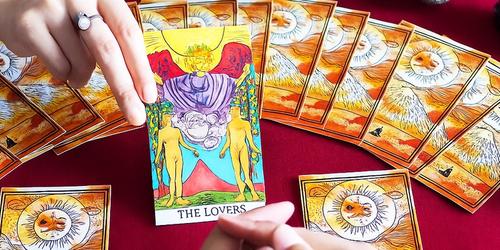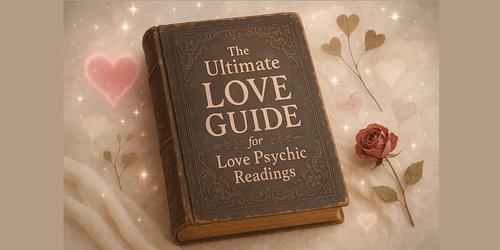
To pay for your reading on your telephone bill, simply call
Instantly message our featured psychics online via psychic messenger.
Click to start
Register now to start your reading online. PSYCHIC MESSENGER- Cheapest psychic service in the UK
- Our readers are available 24/7
- 100% confidential service
- In-depth, concise, personal readings
- Thousands of 5* reviews
Published 16/06/2023 • Updated 01/12/2023 by Joanne Jones
What Is a Toxic Relationship?
On the surface, a toxic relationship may seem normal, but underneath can be defined as a relationship that is harmful or detrimental to the emotional, physical, and mental health of the individuals involved.
Such relationships are usually characterized by manipulation, control, abuse, and disrespect.
Toxic behaviours can occur between partners, family members, friends, or even in the workplace, and they often have long-lasting negative effects on the victims.
One of the most significant indicators of an unhealthy relationship is the presence of emotional abuse. Emotional abuse can include verbal abuse, gaslighting, intimidation, and withholding of affection or support. It is used to control and manipulate the other person, leaving the victim feeling insecure, anxious, and powerless.
What Is a Toxic Relationship?
One of the most significant aspects of a toxic relationship is the difficulty of ending it.
The victim often makes excuses for the toxic behaviour, feels guilty for wanting to leave, and may even believe that they deserve the mistreatment.
This cycle of pain and cognitive dissonance can make it exceptionally challenging to end a bad relationship, and it often requires professional help and support from friends and family.
These types of toxic patterns in a relationship can have severe consequences for one's physical and mental health. Recognizing the signs of toxic behaviour and seeking help to end the cycle of abuse and negativity is essential. Read more on how to leave a toxic relationship.
Signs of Toxic Relationship
Toxic relationships are characterized by behaviours, attitudes, and actions that cause emotional and physical damage to one or both partners.
These relationships can be hard to identify since unhealthy behaviour often starts small, but it can grow into severe problems if left unchecked.
No Respect
In a toxic relationship, one of the most telling signs is the lack of respect between partners. This can include name-calling, belittling, dismissing opinions or feelings, or outright hostility.
The absence of basic human decency can lead to feelings of worthlessness, anxiety, and depression in the victimized partner.
This type of partnership often lacks empathy, with one partner exerting control over the other through various means.
This can include emotional manipulation, financial abuse, or even physical violence. In such cases, the partner with more power may use disrespectful behaviours to maintain dominance and instil fear in the other.
What makes a toxic partnership particularly insidious is that the lack of respect can be subtle and insidious. It may start with small acts of disrespect that gradually escalate or be accompanied by moments of apparent kindness or affection that ultimately prove hollow.
Needs Aren't Met
One sign of a toxic relationship is when needs aren't being met.
This can take many forms, such as emotional support not being provided, physical needs not being recognized, or neglecting the needs of one partner over the other.
When a relationship is unhealthy, one partner may give more than they receive. This can lead to feelings of isolation or low self-worth.
Additionally, the feeling of being unimportant or undervalued by your partner can be a significant source of emotional distress.
In some cases, needs may not be met because one partner is emotionally unavailable or uninterested in fulfilling their partner's desires.
Lack of Communication
A lack of communication is often one of the earliest and most prominent signs of an unhealthy relationship.
It can manifest in various ways, including one partner avoiding conversations or shutting down communication altogether or both partners struggling to express themselves effectively or feel heard by the other.
This lack of communication creates a breeding ground for misunderstandings, resentment, and a general sense of disconnection between both partners.
When communication is lacking in a relationship, resolving conflicts or addressing issues as they arise can become difficult. Any emerging problems may be swept under the rug, only to resurface later in resentment or other negative emotions.
Feeling Trapped
Feeling trapped may come from a physical sense of confinement, such as when a partner tries to control or limit their access to resources like money, transportation, or social support networks.
This can create a sense of dependence or isolation, making it difficult for the individual to leave the relationship even if they want to.
Beyond the practical limitations, however, feeling trapped in a toxic relationship can take a heavy emotional toll.
It may lead to feelings of anxiety, depression, or helplessness as the individual struggles to balance their own needs with the demands of their partner.
Over time, this can erode their sense of self-worth and lead to a distorted view of what a healthy relationship should look like.
Give More Than You Take
Signs of a toxic relationship include a dynamic where one partner consistently gives more than they receive in return.
This type of relationship may begin as seemingly equitable, but over time, it can become unbalanced, with one person feeling constantly depleted and the other feeling increasingly entitled.
In this type of relationship, there are often power imbalances where one person holds all the decision-making power because they are perceived to be more valuable or have more control within the relationship.
Giving more than taking can also be seen in situations where one partner constantly makes sacrifices for the other, whether in terms of time, money, or emotional support.
This often leads to a lopsided relationship where one partner is viewed as a constant source of help and support, while the other is seen as a taker who consistently demands and never provides.
Undervalued
One key sign of a dysfunctional relationship is feeling consistently undervalued and underappreciated.
This can manifest in multiple ways, including a lack of respect and consideration from a partner, feelings of insignificance or worthlessness, and a sense of being taken for granted.
Undervalued individuals may not have their emotional needs met or may feel like they are making sacrifices without receiving anything in return.
Research has found that individuals in hostile relationships are more likely to experience symptoms of depression, anxiety, and other mental health issues.
Feel Resentment
Toxic relationships can manifest in numerous ways, but feeling resentment towards one's partner is a clear sign that something is wrong.
It is common for minor irritations to build up over time in a relationship, but when these feelings turn into deep-seated resentment, it is a warning sign that should not be ignored.
Resentment can manifest in many forms, such as feeling frustrated or angry towards one's partner or like they are not trying in the relationship.
These feelings can stem from various sources, such as unmet needs or lack of communication, and if not addressed, can fester and grow, causing further damage to the relationship.
Passive Aggressive
In a passive-aggressive relationship, passive aggression is a commonly observed behaviour. It can manifest in many ways, including withering sarcasm, subtle jabs, and backhanded compliments.
Passive aggression is a means of control or manipulation, confusing the victim and making them unsure of how to respond.
One sign of passive aggression in a relationship is silent treatment. The abuser may stop communicating with their partner for extended periods, leaving them feeling isolated and uncertain about their wrongdoings.
The abuser may also play mind games, causing their partner to doubt their perceptions and beliefs.
Another manifestation of passive aggression in a relationship is using nonverbal cues, such as eye-rolling or ignoring their partner's comments. This is designed to make the victim feel invalidated, insignificant, and powerless.
Low Self-Esteem
One of the most prominent signs of low self-esteem caused by a toxic relationship is a difficulty setting healthy boundaries.
Individuals may find themselves constantly making compromises and sacrificing their needs and wants to please their partner. This is often a result of constant criticism and blame from the toxic partner, causing the individual to believe they are not good enough.
Toxic individuals often manipulate and control their significant other, causing them to second-guess themselves in even the most straightforward decisions.
Feel Unsupported
Feeling unsupported by a toxic individual is a common sign of a dysfunctional dynamic. This lack of support can manifest as your partner's lack of emotional or physical availability.
A toxic partner may gaslight you, dismiss your concerns, or make you feel guilty for expressing your feelings, further exacerbating the sense of being unsupported.
A toxic partner may ignore your needs and emotions even when you need them the most, leaving you alone and vulnerable.
Being unsupported in a loving relationship is emotionally depleting and can have long-term negative effects such as depression, anxiety, and low self-esteem.
Sleeping and Eating Patterns Change
Individuals with a toxic partner may have difficulty sleeping, either struggling to fall asleep or waking up frequently throughout the night.
In some cases, individuals may also experience nightmares or vivid dreams that leave them feeling tired and unrested in the morning.
Similarly, changes in eating patterns are also a common sign of a toxic relationship. Some individuals may experience a loss of appetite or have difficulty swallowing when they are in the presence of their toxic partner.
Others may find themselves overeating or eating unhealthy foods as a coping mechanism for stress and anxiety.
Depressions and Anxiety
One of the primary reasons why toxic relationships can lead to depression and anxiety is the constant emotional abuse and manipulation that often accompanies them.
This can take many forms, including gaslighting, verbal and emotional attacks, and constant criticism. Over time, this ongoing emotional turmoil can lead to isolation, helplessness, and a loss of self-confidence, all contributing to developing depressive and anxious symptoms.
Toxic individuals constantly second-guess themselves, leading to a persistent state of anxiety.
Often a partner may struggle when it comes to decision-making, as individuals in unhealthy type relationships often feel as though they are walking on eggshells and must weigh every choice to avoid criticism or anger from their partner.
Bring Out the Worst in One Another
The effects can be devastating for individuals trapped in a hostile relationship.
Signs of a toxic relationship can bring out the worst in both individuals, resulting in an unhappy and harmful cycle of abuse that can be difficult to break.
There can be a range of unhealthy behaviours, including gaslighting, manipulation, emotional abuse, and physical violence. These behaviours can lead to feelings of isolation, low self-esteem, and physical and mental health issues.
Walk on Eggshells
Toxic relationships can often be characterized by the feeling of walking on eggshells around the other person.
This is because the toxic partner may exhibit erratic and unpredictable behaviour, making it difficult for the partner to avoid any adverse reactions pre-emptively.
In such an environment, the victim may constantly need to be overly cautious with their words and actions, fearing that even the slightest mistake may trigger an outburst from their toxic partner.
This can be an incredibly stressful and draining experience, leading to chronic anxiety and a constant state of hypervigilance.
To make matters worse, toxic partners may make their partners feel like they are constantly at fault, even when it is not their fault at all.
You Don’t Feel Your Best
One of the most prominent signs of a toxic relationship is when an individual doesn't feel their best.
In a bad relationship, the toxicity can seep into all aspects of an individual's life, even affecting their daily activities and routines.
For example, they may begin to avoid social situations or lose interest in activities they once enjoyed. This can further exacerbate the negative effects of the toxic relationship, leading to a downward spiral of negative emotions and physical symptoms.
You Feel Alone
Regarding relationships, feeling alone is often a major red flag leaving a person feeling unsupported or emotionally isolated.
Feeling alone in a relationship means you don't feel heard or understood by your partner. They may dismiss your thoughts and feelings or be unresponsive when connecting with them.
Another sign of feeling alone in a relationship is feeling like you're always the one putting in the effort. This can come in the form of always initiating plans or conversations or feeling like you're solely responsible for maintaining a positive relationship.
Your partner may seem uninterested or disengaged. You may also find that your needs and wants continually need to be met, leaving you frustrated and alienated.
Lack of Trust
A lack of trust can also result in small and large dishonesty between partners.
People in unhealthy relationships may often feel compelled to lie about their actions or whereabouts to avoid their partner's wrath or jealousy. Alternatively, they may become hyper-vigilant in monitoring their partner's phone calls, social media activity and whereabouts to catch perceived lies and deception.
Such a lack of trust may stem from a history of infidelity, past betrayals, or deep-seated insecurities. It can also reflect a power imbalance within the relationship, where one partner needs to exert control or dominance over the other.
Ultimately, it can lead to frustration, insecurity, and anxiety, making maintaining a healthy and happy relationship challenging.
You Are Being Abused
Recognizing the signs of abusive relationships and seeking help before the abuse escalates further is essential.
Identifying the signs of an abusive relationship is the first stage towards ending the cycle of physical aggression.
Physical abuse is not the only tell-tale sign of a toxic relationship. Emotional and sexual abuse may be more challenging to spot as they may not leave physical evidence.
Mental abuse is one of the most insidious forms of abuse. It can range from verbal abuse - name-calling, humiliation, yelling, and blaming - to controlling behaviours such as dictating what you wear, who you talk to, and where you go.
Mental abuse can affect physical health, self-esteem, and self-worth.
Sexual abuse is a violation of your body, boundaries, and trust. It can take many forms, including rape, coercion, and sexual manipulation. The abuser may use threats, guilt trips, and bribes to force you to commit sexual acts against your will, leaving you in physical danger.
Love Readings
A psychic love reading is a service provided by professional psychics who specialize in love and relationship matters.
It involves reading the energy fields around a person to gain insights into their current relationship status, the potential outcomes of their present circumstances, and the prospects for future relationships.
Love psychic readings are designed to provide individuals with guidance and advice on how to navigate their love life and attract meaningful and fulfilling relationships.
The idea of seeking help from a love psychic may seem odd, but a popular service has helped many individuals find love and develop more meaningful relationships. Psychics use techniques to provide insights into love and relationships, including tarot cards, astrology, and divination. These techniques allow them to tap into their intuition and connect with their clients deeper.
Many people feel stuck in their love lives and unsure how to move forward. A love psychic can help individuals understand their relationship patterns and identify any limiting beliefs preventing them from finding meaningful connections.
Another benefit of psychic love reading is that it can guide attracting the right loving partner. By tapping into the energy fields around an individual, a psychic can gain insights into the qualities and attributes they need in a partner.
FAQs
How Do I Know If My Relationship Is Toxic?
To know if your relationship is toxic, you need to pay attention to how you and your partner interact.
Relationships are characterized by a consistent pattern of manipulative behaviours that cause emotional or physical harm to one of the individuals.
Look out for signs of controlling behaviour, such as your partner discouraging you from spending time with friends or family or trying to dictate what you wear or behave.
Additionally, dysfunctional relationships often involve verbal abuse, such as yelling, name-calling, or belittling comments, which can damage one's self-esteem.
Another red flag is frequent arguments or conflicts in your current relationship that never seem to get resolved. In healthy relationships, disagreements are a normal part of communication, but in toxic relationships, the arguments often escalate into shouting matches or even physical altercations.
What Are the 7 Signs of a Toxic Relationship?
Toxic relationships can be damaging and even dangerous, leading to emotional and physical harm that can be difficult to recover from. Recognizing the tell-tale signs of an unhealthy relationship and acting before it is too late is essential.
- Excessive control and manipulation: A toxic relationship often involves one partner exerting excessive control and manipulation over the other. This can take many forms, including controlling behaviour, emotional manipulation, and isolation from friends and family.
- Lack of trust and honesty: A toxic relationship is often characterized by a lack of confidence and honesty between partners. Dishonesty and deception can create a toxic environment, leading to resentment and mistrust.
- Constant negativity and criticism: A toxic relationship can be characterized by constant negativity and criticism, often leading to low self-esteem and unworthiness.
- Blaming and deflecting responsibility: Abusive relationships often involve partners who refuse to take responsibility for their actions, instead choosing to blame others for their problems and shortcomings.
- Lack of communication and respect: Good communication and mutual respect are essential to a healthy relationship. Toxic relationships often lack these qualities, with partners failing to communicate effectively.
- Emotional and physical abuse: In some cases, an abusive partner may involve emotional and physical abuse, including threats, intimidation, and physical violence.
- Unresolved conflicts and resentment: Toxic individuals often create conflicts with partners, holding onto negative feelings and refusing to work together to resolve their problems.
What Is a Toxic Person?
A toxic person exhibits harmful, detrimental, or negative behaviours that negatively impact the people around them.
These people are often harmful to others' well-being and emotional and mental health, and they can cause severe damage that is sometimes challenging to undo.
Toxic people are characterized by their ability to manipulate situations, emotions, and relationships to their advantage and may display manipulative or controlling tendencies.
They often have a negative outlook on life and may excessively criticize, judge, or belittle others.
How To Contact A Trusted Psychic
Phone a live Psychic 24 hours a day
View all our live phone psychic and tarot readers online.
View All Live readersMessage a live Psychic 24 hours a day:
View all our live messenger psychic and tarot readers online.
launch messengerRecent Articles From the Trusted Psychics Blog

Are Trusted Psychics the Key to Understanding Your Love Life?
Confused about love or repeating relationship patterns? Discover how psychic love readings help people gain clarity, emotional insight, and love guidance.

How Can a Psychic Love Reading Help Your Love Life?
Discover how accurate psychic love readings bring clarity, soulmate insights, and healing. Trusted Psychics are available 24/7 for guidance & love insights.

3 of Hearts in a Love Reading and Its Meaning
Discover the meaning of the 3 of Hearts in a love reading. Learn what this card reveals for relationships, soulmates, twin flames, emotional growth & breakups.

Psychic Love Readings: What They Reveal About Your Relationship
Discover with Trusted Psychics what psychic love readings are and what they reveal about your relationships, from new to existing relationships & ex-partners.

What Is a Psychic Love Reading? The Ultimate Love Guide
Explore our ultimate love guide on psychic love readings & how they can help you with finding your twin flame, soulmate, new love, & whether an ex will return.

The Ultimate Guide to Finding Your Soulmate Through Tarot
Here's the ultimate guide to finding your soulmate through Tarot. Find out what The Lovers, 2 of Cups & 4 of Wands Tarot cards mean for finding your soulmate.

